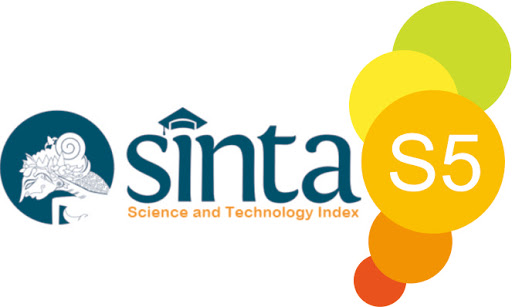THE PREVENTION OF OBESITY AT THE AGE OF YOUTH AND THE ASSISTANCE OF DETECTION OF OBESITY IN PERSPECTIVE LAWS OF HEALTH
DOI:
https://doi.org/10.32734/abdimastalenta.v3i2.4040Keywords:
Obesity, Adolescence, Health LawAbstract
Slowly, the Indonesian people may be used to being free from the problem of nutritional deficiencies. What happened actually entered a transition from malnutrition to excess nutrition. In fact, the problem of excess nutrition began to afflict low economic class society. That is, those with low economic levels, are not likely to suffer from chronic degenerative diseases such as the heart. Although energy and nutrient requirements are greater in adolescents than adults, there are some teenagers who eat too much more than they need to be fat. Adolescent age (10-18 years) is a period of nutritional susceptibility due to various reasons, namely first teenagers need higher nutrition because of increased physical growth. Second, there are changes in lifestyle and eating habits. Third, adolescents have special nutritional needs, for example the needs of athletes. Changing eating habits one of them occurs due to widespread globalization. Teenagers are one of the target groups who are at risk of experiencing more nutrition. More nutrition in adolescents is characterized by relatively excessive body weight when compared to the age or height of adolescent age, as a result of excessive accumulation of fat in body fat tissue. According to Law No. 36 of 2009 concerning Health explained that health efforts are any activities and / or a series of activities carried out in an integrated, integrated and sustainable manner to maintain and improve public health degrees in the form of disease prevention, health improvement, disease treatment, and health recovery by the government and / or community. Therefore it is necessary to strive to prevent obesity by means of counseling and giving obesity detection devices. The method used in this extension activity is in the form of focused discussion which begins with a lecture and then is carried out by asking questions directly. Through lectures instructors can deliver material that is important to be known and understood by students while through question and answer can complement unclear material and to help provide input on the problems faced by students about obesity. The provision of obesity detection devices is expected to help students to pay more attention to their health problems.
Downloads
Downloads
Published
Issue
Section
License
Copyright (c) 2019 ABDIMAS TALENTA: Jurnal Pengabdian Kepada Masyarakat

This work is licensed under a Creative Commons Attribution-ShareAlike 4.0 International License.
The Authors submitting a manuscript do so on the understanding that if accepted for publication, copyright of the article shall be assigned to Jurnal Abdimas TALENTA as well as TALENTA Publisher Universitas Sumatera Utara as the publisher of the journal.
Copyright encompasses exclusive rights to reproduce and deliver the article in all forms and media. The reproduction of any part of this journal, its storage in databases and its transmission by any form or media, will be allowed only with written permission from Jurnal Abdimas TALENTA.
The Copyright Transfer Form can be downloaded here.
The copyright form should be signed originally and sent to the Editorial Office in the form of original mail or scanned document.












